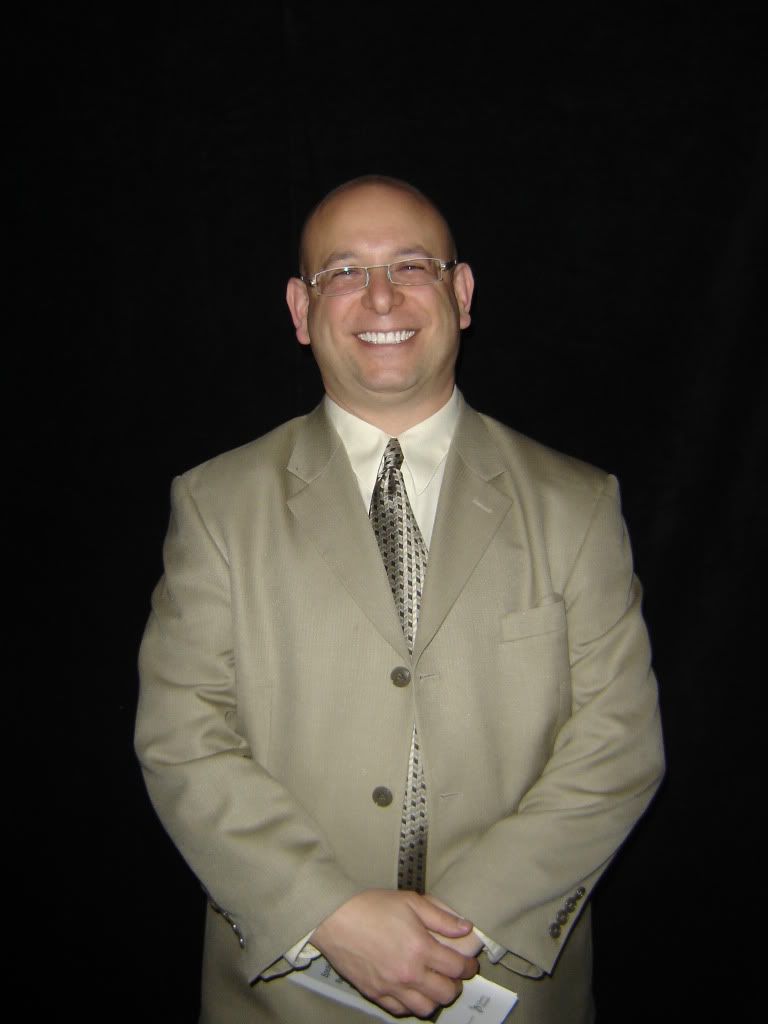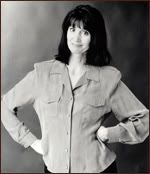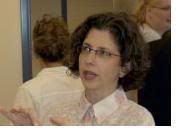Eddie Runyon works as a Special Investigator for Kentucky Employer’s Mutual Insurance, he investigates potential fraud cases.
Tell me a bit about yourself.
I grew up in far Eastern Kentucky, attending the Pikeville Independent School system as a mainstreamed student. I was hard of hearing, had no interpreters or note-takers, or any other accommodations like that (even though IDEA was already a law at the time), no one took the time to share with my parents what accommodations were out there that could have been helpful to me through the educational process. I’m married to a wonderful wife (Yvette), and we have two children, a daughter (Triniti, age 12) and a son (Brock, age 8) and reside in Pikeville, Ky., I’m a graduate of Eastern Kentucky University with 2 degrees, an A.A. in Business and Industrial Security and Loss Prevention, and a B.S. in Loss Prevention Management. I attended Gallaudet University for one year (1990-91), where I was a member of the university baseball team (teammate of Mark Drolsbaugh). I currently spend what little free time I have advocating for the deaf and hard of hearing on different issues, am an Executive Board member of the Kentucky Chapter of the National Society of Professional Insurance Investigators (NSPII), a member of the International Association of Special Investigations Units (IASIU), President of the Board of the Pikeville Aquatics Club, previously coached youth sports with the local YMCA, currently a member of the Access to Captioned Movies study group recently formed by the Kentucky Commission on the Deaf and Hard of Hearing, and serve on the Kentucky Relay Service Advisory Board. I like to stay busy, in other words! Also, I lost the rest of my hearing by about the age of 17, so I’ve been deaf for most of my life.
Tell me about your job– how did you get into this job/line of work?
It was almost by accident, to be honest. For most of my college life, I had bounced around between majors, never seeming to find my “niche”. One day, I was thumbing through the class schedule as I was preparing for another semester of school at EKU, and the “Loss Prevention” program caught my eye. My father was a police officer and former Deputy US Marshal, so I had grown up around security most of my life. I went to talk to an advisor, and he wasn’t very hopeful. He just didn’t think, based on my academic accomplishments at the time, that I had the initiative or drive to do well in that line of work. I HATE being told I can’t do something, so I signed up anyway. Needless to say, 2 years later (and 8 consecutive semesters of “Deans List” or better grades), I had my degrees. While pursuing these degrees, I got a job with a local security company that was looking to hire an investigator to start that branch in their business, focusing on Worker’s Compensation investigations and “general” investigations. I was fortunate that the owner/President was willing to look past my deafness and hire me based on my desire. I went on to be a Senior Investigator for him and helped build it into a sustainable branch of their business. I left there and went into the retail field as a Loss Prevention Manager for Shoe Carnival, and over the course of 5 years with them, rose to the position of Market Loss Prevention Manager, responsible for (at the time) what was their second largest (in terms of sales) market in the company. I moved on to Lowe’s Home Improvement, starting out as a Loss Prevention Manager for them and went on to be promoted to District Loss Prevention, Safety, and Haz-Mat Manager, responsible for 10 stores, approximately 1500+ employees, and over $450 million in yearly sales, within only 3 years. I remained in that position for just over 2 years before leaving for my current job so that I would have more family time. I currently am a Special Investigator for Kentucky Employer’s Mutual Insurance, and I investigate cases in which there may potentially be fraud occurring.
What is the best part of your job?
It is NEVER the same from day to day. I spend a lot of time in the field, doing video surveillance, but I also spend time on the computer gathering information, doing courthouse research, responding to accident scenes to film and gather information for the company, testifying in depositions, and so on. It is challenging from day to day, and requires a lot of time-management skills and the ability to multi-task, and wear different “hats” for the company. One day I may be in court as the face of the company, the next, I’m in anonymity, filming covertly to see if someone is faking or exaggerating an injury, etc.
What are some challenges you face on the job?
Definitely, one of the challenges I face, is the fact that I work alone the majority of the time, and in very rural areas. The lack of sufficient telephonic access for me in times of potential danger is very real. It is one of the reasons I’m pushing so hard for relay companies to develop and make available to wireless users, a VCO-capable mobile “CAPTEL” (based on the Hamilton Relay Service version that is currently available only for I-Phones with 3G access). I realize, that as an oral deaf person, that may seem limited in scope on my part, but I always explain to people that the largest majority of the hearing loss community is hard of hearing, and many are oral. I’m really hoping that becomes available soon, it will be fantastic to have that for my Blackberry! Also, daily ignorance in the hearing community is still very real. I can’t tell you how often I have to explain to people what accommodations are needed and required to be provided, etc. I’ve often been the first, or one of the only deaf people in my field of work everywhere I’ve gone, so I’m used to having to educate people. But I’m fortunate, the company I work for is FANTASTIC about providing me with whatever I need to succeed. They understand that the return on investment for accommodations often much more than is paid for by the increased productivity and results I can subsequently bring in as a result of the accommodation(s).
What was it like growing up deaf/hard of hearing?
It was very reclusive for me, really. I was isolated, I knew no other deaf or hard of hearing people who could serve as a role model for me. So I didn’t know what I could or could not do in “the real world”, I didn’t even learn sign language until I attended Gallaudet when I was 21! But, I have FANTASTIC parents who refused to allow me to simply give up on stuff. I was always being pushed to excel in whatever I did, and it was instilled in me from an early age, that as a hard of hearing/deaf person, I would often have to be twice as good, just to be considered equal. How true that turned out to be!
What advice would you give a deaf/hard of hearing person who is looking for a career like yours?
Find a good school (such as EKU, John Jay, etc.) with programs in security, loss prevention, asset protection, etc. and GO FOR IT. Be willing to work the “scut” jobs when starting out, no one ever starts out at the top, you have to work your way up. Too often, I meet people who are happy to work part-time because they don’t want to give up SSI, etc. Often it is because they don’t see the big picture. I know that is controversial, but it is true. I make a very nice living now, and yes, I had to sacrifice some in the beginning so that I could work my way into a salary position that actually paid a living wage. So my advice would be for people to take a big picture view when they start out in this field (or any other field), and set the goal of the position they want to be in in 2, 3 or 4 years, and WORK to make it happen. Success in any field is not an overnight journey, it requires hard work and sacrifice in the beginning, and it requires willingness to dream big to achieve big. My favorite saying is “Go hard or go home”.






 The first time that I saw Kathy Buckley on Comedy Central, I was blown away. There, standing on stage, was a hard of hearing gal firing off jokes and one-liners. Every now and then, I would see her throw in a sign or two, perhaps out of habit or perhaps to connect with the many deaf and hard of hearing people who enjoy her comedy routines.
The first time that I saw Kathy Buckley on Comedy Central, I was blown away. There, standing on stage, was a hard of hearing gal firing off jokes and one-liners. Every now and then, I would see her throw in a sign or two, perhaps out of habit or perhaps to connect with the many deaf and hard of hearing people who enjoy her comedy routines.



 I can clearly remember the first time I met Dr. Carolyn Stern– I was filled with a million questions. “How do you listen through the stethoscope?” was one of the questions that I asked.
I can clearly remember the first time I met Dr. Carolyn Stern– I was filled with a million questions. “How do you listen through the stethoscope?” was one of the questions that I asked.